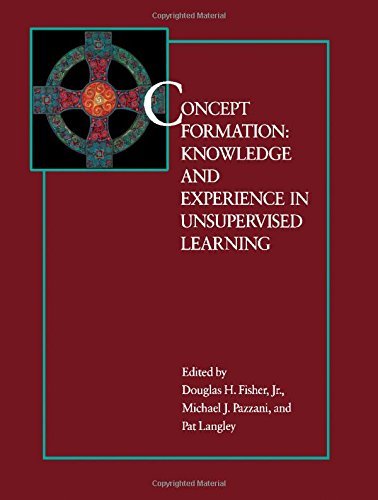Inhaltsangabe
Concept Formation: Knowledge and Experience in Unsupervised Learning presents the interdisciplinary interaction between machine learning and cognitive psychology on unsupervised incremental methods. This book focuses on measures of similarity, strategies for robust incremental learning, and the psychological consistency of various approaches. Organized into three parts encompassing 15 chapters, this book begins with an overview of inductive concept learning in machine learning and psychology, with emphasis on issues that distinguish concept formation from more prevalent supervised methods and from numeric and conceptual clustering. This text then describes the cognitive consistency of two concept formation systems that are motivated by a rational analysis of human behavior relative to a variety of psychological phenomena. Other chapters consider the merits of various schemes for representing and acquiring knowledge during concept formation. This book discusses as well the earliest work in concept formation. The final chapter deals with acquisition of quantity conservation in developmental psychology. This book is a valuable resource for psychologists and cognitive scientists.
Reseña del editor
Concept formation lies at the center of learning and cognition. Unlike much work in machine learning and cognitive psychology, research on this topic focuses on the unsupervised and incremental acquisition of conceptual knowledge. Recent work on concept formation addresses a number of important issues. Foremost among these are the principles of similarity that guide concept learning and retrieval in human and machine, including the contribution of surface features, goals, and `deep' features. Another active area of research explores mechanisms for efficiently reorganizing memory in response to the ongoing experiences that confront intelligent agents. Finally, methods for concept formation play an increasing role in work on problem solving and planning, developmental psychology, engineering applications, and constructive induction. This book brings together results on concept formation from cognitive psychology and machine learning, including explanation-based and inductive approaches. Chapters from these differing perspectives are intermingled to highlight the commonality of their research agendas. In addition to cognitive scientists and AI researchers, the book will interest data analysts involved in clustering, philosophers concerned with the nature and origin of concepts, and any researcher dealing with issues of similarity, memory organization, and problem solving.
„Über diesen Titel“ kann sich auf eine andere Ausgabe dieses Titels beziehen.
